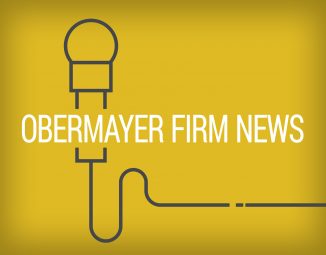Court May Modify Custody Without Petition to Modify
A common issue that faces family court judges and attorneys is whether a trial court can modify a child custody order when a matter before the court is not pursuant to a petition to modify custody. Oftentimes, this issue will present itself when a case is in court on a petition for contempt of a custody order or a petition to enforce a custody order. In the past, instances have arisen where trial courts have modified child custody orders when the issue before the bench was a contempt action. The line of cases that followed held that a trial court could not modify a child custody order if a petition to modify custody was not before it. Therefore, attorneys trained themselves to file both a petition for contempt and a petition to modify custody to be heard simultaneously in the event the relief sought would be to modify the custody order.
23 Pa.CS Section 5338 provides, in part: “Upon petition, a court may modify a custody order to serve the best interest of the child.” The statutory language was the genesis of the theory that a petition to modify was needed to modify a custody order. The roots of same are also based on due process rights. It would be a due process violation for a court to address an issue, such as modifying custody, where a litigant did not have notice that such action could be taken in court.
Beginning with Guadagnino v. Montie, 646 A.2d 1257 (Pa. Super. 1994), and more recently S.W.D. v. S.A.R., 96 A.3rd 396 (Pa. Super. 2014), this issue has evolved. In those cases, the Pennsylvania Superior Court indicated that it is not inappropriate or an error of law for a trial court to modify a custody arrangement even though a specific petition to modify custody was not filed with the court if the petition before the court specifically pleaded facts and sought relief to modify custody, thereby putting the opposing party on notice that modifying custody may be an issue before the court. The most recent case of C.A.J. v. D.S.M., ___ A.3d ___, 2016 PA. Super. 40 (Feb. 18, 2016), provided a loud reminder that a trial court can modify a child custody order even though a petition to modify custody is not before the court.
The facts of the C.A.J. case, in part, are as follows: C.A.J. (the mother) and D.S.M. (the father) are the parents of a minor child. Initially, the parties reached an agreement following a conciliation conference where the mother had primary physical custody with the father having partial custody every other weekend during the months of Sept. through May 1. From May 1 through Sept. 1, the parties were to share equal custody on a week on/week off basis, according to the opinion. In the opinion, it reflects that prior to the parties entering into their agreement, the mother relocated a distance from the father in Pennsylvania and the parties appeared to follow the schedule after the mother’s relocation. Approximately two years later, in February 2015, the father filed a petition for contempt that “alleged that mother was not giving child back when it was father’s time.” The father also requested in his petition that he have primary physical custody of the child. However, the father’s petition was a petition for contempt and not a petition to modify. At the hearing on the father’s petition for contempt, “it became apparent … that neither party followed the [custody] order.” According to the opinion, the father requested, at the hearing, that the parties have equal custody on a two-week on/two-week off basis “because for all practical purposes mother and father were already sharing time on an equal basis.” At the hearing, “mother testified that she wanted to retain primary physical custody with father having custody every other weekend. She indicated that the 50/50 custody the parties had over the summertime was not working.” Following the hearing, the trial court entered an order consistent with the father’s request and ordered a two-week on/two-week off physical custody schedule.
The mother filed a timely notice of appeal and raised two issues. The first issue was whether the trial court erred and abused its discretion in modifying the prior custody order when a custody modification petition had not been filed “but instead only a petition for contempt had been filed.” The other issue on appeal was whether the trial court abused its discretion in its application of the custody factors under Section 5328 in determining the best interest of a child.
The crux of the mother’s argument regarding her first issue on appeal was that she was denied due process when the trial court modified custody when the father only filed a petition for contempt and not a petition to modify custody. Relying on 23 Pa.C.S. Section 5338, the mother claims that before a court can modify a custody order a petition to modify must be filed.
In reiterating that the most appropriate manner to request a modification of a custody order is by filing a petition to modify, the Superior Court provided a reminder that a court is not precluded, under appropriate circumstances, “to alter a custody/visitation order when it is in the best interest of the child to do so.” In citing the Guadagnino and S.W.D. cases, the Superior Court stressed that if the petition before the court expressly states that the litigant is seeking custody, or seeking review of custody, or that custody will be an issue before the court, the court is permitted to modify custody without a pending petition for modification. In the case of C.A.J., the court reiterates that “father’s petition expressly states that he is requesting physical custody, thereby placing mother on notice that the custody order was an issue.” Accordingly, the Superior Court found that the mother had proper notice that custody would be an issue and could be addressed at the contempt proceeding and that no abuse of discretion occurred by the trial court in modifying the custody order.
Interestingly, on the mother’s second issue on appeal, the court vacated the trial court’s order and remanded the matter back to the trial court to prepare an opinion and order specifically addressing all the factors enumerated under Section 5328(a). Under the Superior Court’s opinion, it quotes the trial court’s eight-point reasoning for rendering its custody decision. Contained in the trial court’s eight points were a number of the 16 enumerated factors under Section 5328(a). However, the Superior Court held that the trial court considered approximately half of the factors and that some of the factors addressed by the court lack an in-depth analysis. Therefore, the case was sent back to the trial court to give a further analysis and consideration of all of the factors.
This case is an important reminder to the bench and to the family law practitioners that a petition to modify custody is not the only means to modify a custody order. Therefore, if a party desires to file a contempt or special relief petition and also wants the court to address custody and adjust the custody order, as long as the pleading specifically provides that those issues are to be addressed by the court, and relief in the form of modifying a custody order is sought, adequate notice can be deemed to have been given to the opposing party, and the trial court may adjust the custody schedule at that proceeding. Further, this case is another reminder to the trial courts that a detailed analysis of all of the Section 5328(a) factors is needed when the court renders its decision. The issue of analyzing the Section 5328(a) factors continues to be an ever-evolving area in family law. Though it appears that the trial court did analyze the factors in the C.A.J. case, by reading the Superior Court’s opinion, it appears that the Superior Court now wants a more in-depth and detailed analysis of every factor.
Court May Modify Custody Without Petition to Modify.pdf
Michael E. Bertin is a partner at the law firm of Obermayer Rebmann Maxwell & Hippel. Bertin is co-author of the book “Pennsylvania Child Custody Law, Practice, and Procedure.” Bertin is a fellow of the American Academy of Matrimonial Lawyers, a former chair of the family law section of the Philadelphia Bar Association, the current co-chair of its custody committee, and holds the officer position of secretary of the family law section of the Pennsylvania Bar Association. Bertin can be reached at 215-665-3280 or michael.bertin@obermayer.com.
The information contained in this publication should not be construed as legal advice, is not a substitute for legal counsel, and should not be relied on as such. For legal advice or answers to specific questions, please contact one of our attorneys.
Reprinted with permission from the April 19, 2016 edition of THE LEGAL INTELLIGENCER © 2015 ALM Media Properties, LLC. All rights reserved. Further duplication without permission is prohibited. For information, contact 877-257-3382, reprints@alm.com or visit www.almreprints.com. #201-04-16-05






